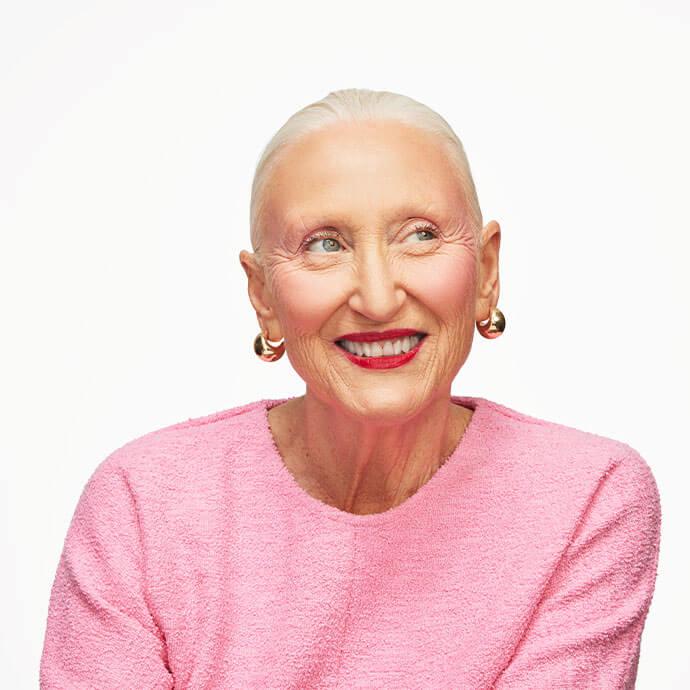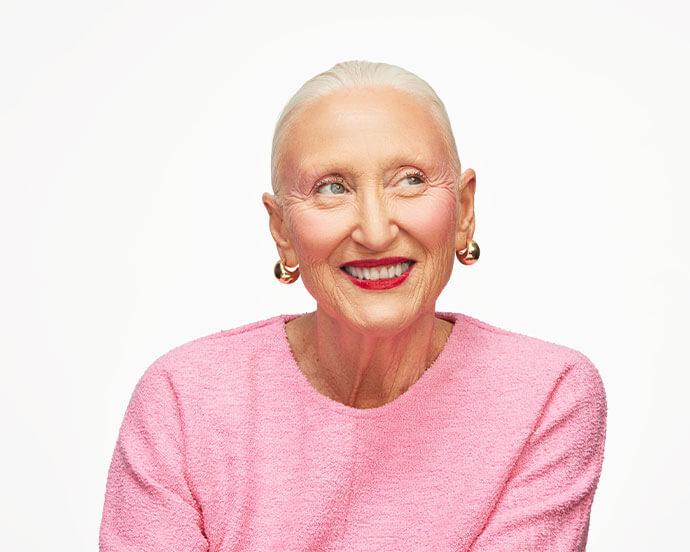We Asked Derms About Biotin & Acne—Are the Two Linked?



Brittany Leitner


Photo by LeviaZ / Getty
If the first thing you think of when you hear the word “biotin” is a key ingredient in hair and nail health, you’re not wrong. But lately, a lot of conversation has popped up regarding biotin and acne, and the connection between increasing your biotin intake and stubborn and uncomfortable breakouts.
If you’re someone who deals with acne routinely, this might ring the alarms in your brain. We’re here to say: Don’t freak out just yet. Just because a conversation is trending doesn’t mean it’s entirely true. To find out everything you need to know about the link between biotin and acne, we spoke with board certified dermatologist Rachel Nazarian, MD.


It's about glam time you treated yourself.
MEET THE EXPERT
Rachel Nazarian, MD, is a board-certified dermatologist at Schweiger Dermatology Group in New York City.
What Is Biotin?
First thing’s first: Let’s get into what biotin actually is and what it can do for your health. “Biotin is actually a type of vitamin B (surprise!), specifically B7, that's vital to the overall health of our bodies, hair, nails, and skin,” explains Dr. Nazarian. “It’s necessary for the appropriate metabolism of various substances in our body and is found in many foods we eat on a daily basis, such as eggs, nuts, and seeds.”
Increasing your biotin intake through supplements may help increase your overall health, as well as the health of your hair, skin, and nails.
Can Biotin Cause Acne?
Let’s get into the reason we’re all here: Can increasing your biotin intake actually cause breakouts on the skin? According to Dr. Nazarian, there’s no reason to freak out just yet.
“There has been a lot of chatter about biotin and circulating information that purportedly linked biotin to acne formation,” explains Dr. Nazarian. “Thankfully, there’s actually never been a true link between biotin, in either topical or oral form, triggering acne formation.”
So why the public outcry? “Some people theorized that since biotin had the potential to interfere with the metabolism of another vitamin, B5, that this might lead to the development of acne, disrupting the absorption of other vitamins that are good for skin health,” says Dr. Nazarian. “This is also now known to be untrue.”
Can Biotin Supplements Benefit Skin?
In fact, adding in biotin with other vitamins has actually shown promise against fighting acne, Dr. Nazarian points out. “There have been smaller studies that have studied biotin in combination with other vitamins that have shown some promise in reducing acne lesions,” she says. “It’s important to remember that at this point there isn’t enough information to suggest the use of biotin, either orally or topically, to treat acne.”
What derms do know is that “biotin deficiency can lead to problems in production and growth of hair, and inflammation and flaking of the skin,” says Dr. Nazarian. “Biotin is certainly a vital vitamin for optimal hair and skin health.”
The Final Verdict
When it comes to acne, you don’t need to worry about biotin affecting it much at all. “With acne, and skincare, I like to subscribe to a philosophy of ‘safety first’ and ‘science supported,’” says Dr. Nazarian. “Oral biotin (or topical) has not shown nearly as much efficacy for treating acne breakouts as other longstanding acne-fighting ingredients like sulfur, salicylic acid, and retinoids.”
Just make sure that before you take any sort of supplement you discuss it with your physician because they know your personal medical history and can spot any potential issues. “Unnecessary oral biotin supplementation may be problematic for people who are having specific blood monitoring tests done with their physician,” notes Dr. Nazarian. “Always communicate all your oral medications and supplements with your physicians to better understand what additions and treatments would be a safe and effective choice for you,” she adds.
Liked this post? Share!
Related Stories


Skin
How to Adjust Your Skincare Routine for Mature Skin in the Winter
Published on Dec 4, 2025 • 7 min read


Skin
Meet the Best Moisturizers for Winter, According to Dermatologists
Published on Dec 1, 2025 • 9 min read


Skin
What Is Inflammaging—and Why Everyone’s Talking About It
Published on Dec 1, 2025 • 8 min read


Skin
6 Skincare Trends to Have on Your Radar in 2026, According to Experts
Published on Dec 1, 2025 • 7 min read


Skin
We Grabbed Our Crystal Ball and Found These 6 Skincare Predictions for 2025
Published on Dec 10, 2024 • 7 min read


Skin
Simple Self-Care Tips That Actually Make a Difference
Published on Nov 13, 2025 • 12 min read


Skin
These 9 Face Scrubs Will Unlock Soft and Smooth Skin on Contact
Published on Nov 5, 2025 • 10 min read


Skin
10 Thanksgiving Foods That Will Have Your Skin Coming Back for Seconds
Published on Oct 15, 2025 • 7 min read


Beauty Picked Just for You
Get 5 products worth up to $70
Plus exclusive access to epic deals up to 80% off
Starting at just $14/month. Cancel anytime.